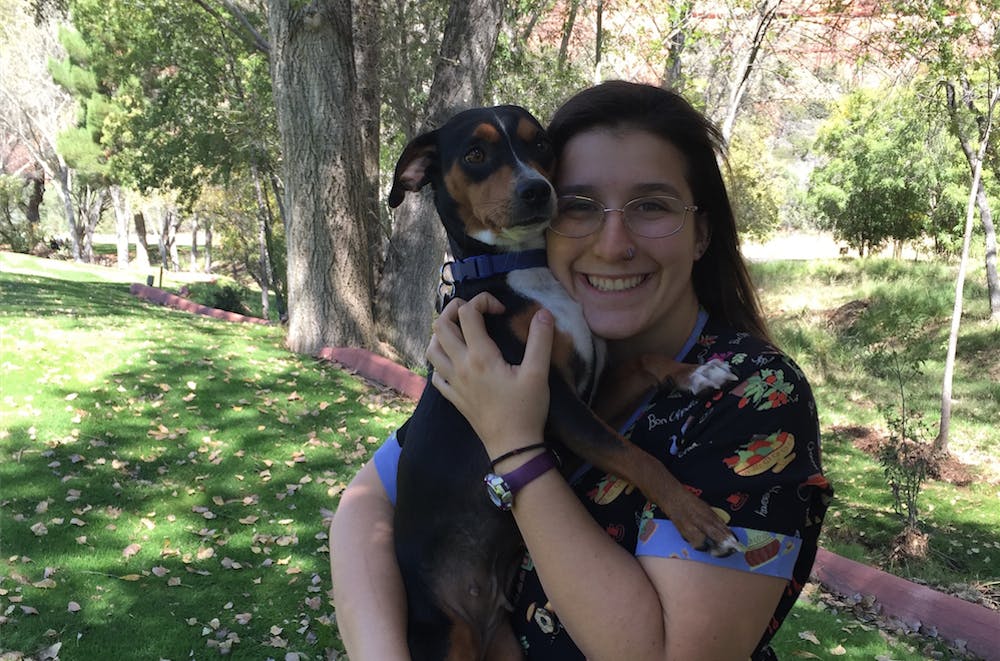College students don’t have the time to take care of themselves, let alone another animal. With academics, extracurricular activities, sports and whatnot, tending to an animal doesn’t seem to be a feasible option for students, especially for those adjusting to college life for the first time.
Students tend not to consider the extent of the commitment of owning a pet, both monetarily and time-wise.
The cost of owning a dog, for example, falls between $360 and $2,520 a year. Many students struggle to financially support themselves, so paying for quality veterinary care, food and other supplies often isn’t an option.
Additionally, neglect has become a real issue with college students and their pets. Students often don’t have time to dedicate to their pets, which is an important factor of caring for an animal, especially for dogs. According to The Ann Arbor News, dogs require about three-and-a-half hours of attention from their owner per day. Unfortunately, many students can’t make this time, especially when they want to maintain a social life. Leaving pets at home when going out to a party or even while at the library studying is irresponsible, but it happens all the time.
A recent trend in college has been to purchase puppies. They often receive a significant amount of attention from others as they are toted around campus, but their cuteness often distracts people from the amount of work the owners have to put into caring for them. They need to be trained extensively, and if they are not, the pet owners will suffer the consequences in the future.
Often times, students come to terms with their inability to care for an animal, but by then it is too late. According to a representative of the Washington Humane Society, college students abandoning pets has become a significant problem. This is especially prevalent at the end of the school year when students move out and don’t take the time to find their pet a new home.
The policy at ASU reflects these problems adequately. Pets are prohibited in ASU housing, unless they are registered through the Disability Resource Center as emotional support animals or as trained service pets.
While many college students are not prepared to care for a pet, some individuals are not only prepared to care for an animal, but they also thrive off the support of a pet. Therefore, these exceptions are important in that they allow for the use of animals as a means of support and care.
Emma Hobbs, a sophomore at ASU, owns Bernie, a trained service dog.
“Last year, I was having a really traumatic familial situation, which was bringing to the surface a lot of mental health issues that I previously had not had to confront explicitly,” Hobbs said. “For me, having a service animal was a very important way to be able to process and deal with the mental issues I had previously not had to deal with.”
Hobbs had to go through the DRC (Disability Resource Center), which is required of all students registering a pet for University housing.
“There are two different processes (for getting exempt from the housing policy)," Hobbs said. "For emotional support animals, all you have to do is provide a letter from a doctor or psychiatrist explaining what your diagnosis is and why it would be beneficial for you to have an animal. For service animals, you need a diagnosis from a medical professional, but service animals have different rules as to where they are allowed, so you have to have consultation meetings with the DRC.”
Animals that are not serving a concrete purpose, as a service animal would, could possibly prevent these pets from doing their job.
“I don’t know if a lot of college students are in a place where they are mature enough to care for a pet independently,” Hobbs said. “It’s something where ... there is an increased frequency of animals, it detracts from animals actually doing work.”
There is a time and a place for pets in college. Because most students are not prepared to care for an animal, only those serving a purpose ought to be available for those who need them.
“There is this dichotomy here where I think animals are very important and can be such an asset to people’s mental health and general stability in a college setting, but I think there is also an aspect where we need to ask how we need to respect people with disabilities, who for them having an animal is real necessity and not just a comfort,” Hobbs said.
Correction: A precious version of this article incorrectly stated the cost of owning a pet, it has been updated with the correct information.
Reach the columnist at ghirneis@asu.edu or follow @ghirneise2 on Twitter.
Editor’s note: The opinions presented in this column are the author’s and do not imply any endorsement from The State Press or its editors.
Want to join the conversation? Send an email to opiniondesk.statepress@gmail.com. Keep letters under 300 words and be sure to include your university affiliation. Anonymity will not be granted.
Like The State Press on Facebook and follow @statepress on Twitter.




